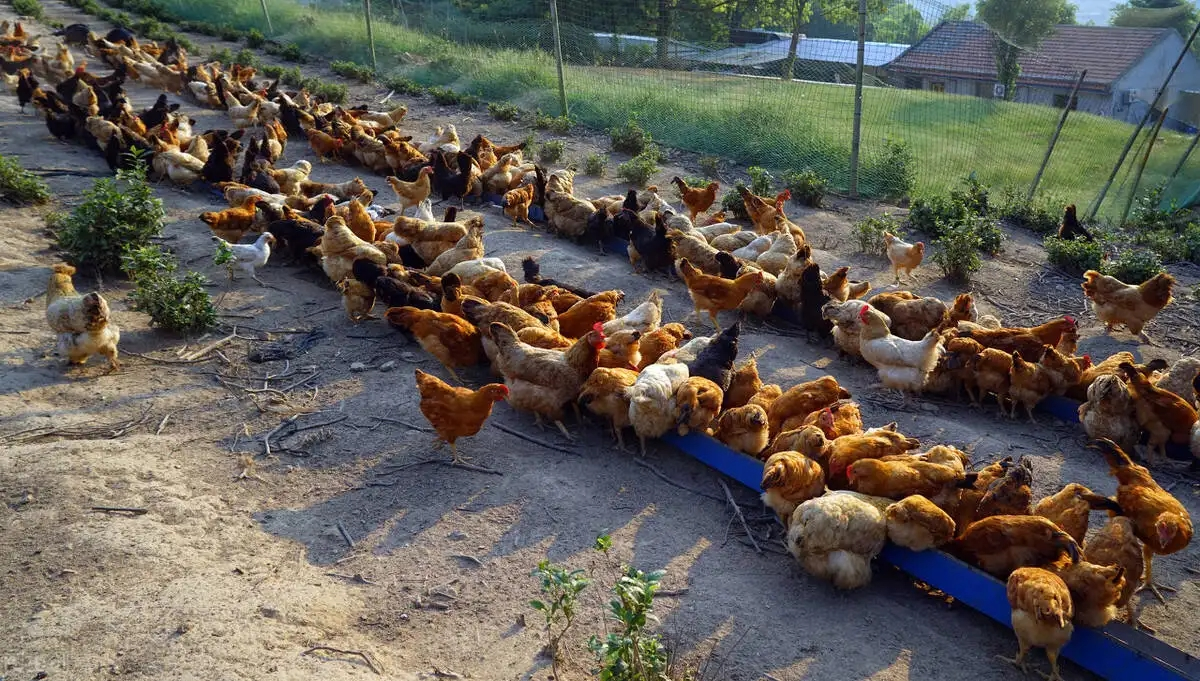Heat stress is an adaptive disease that occurs when chickens are strongly stimulated by a heat stressor. Heat stress in laying hens mostly occurs in chicken houses with temperatures over 32℃, poor ventilation and poor hygiene. The severity of heat stress increases with the increase of the house temperature, and when the house temperature exceeds 39℃, it can lead to heat stress and mass mortality of laying hens, which is very easy to happen in laying flocks.
-The impact of heat stress on the flock
1、Respiratory damage
Dry hot wind, coupled with the rapid breathing of the chickens, will burn the mucous membrane of the trachea of the chickens, the chickens will show the situation of huffing and puffing, and over time, there will be tracheal haemorrhage, air sac inflammation and other symptoms.
2、Diarrhoea problem
It is common for chickens to drink a lot of water, intestinal flora imbalance, incomplete digestion of feed.
3、Decrease in egg production rate
The most intuitive impact of heat stress on laying hen farming is the decline in egg production rate, an average decline of 10%. Laying hens breeding appropriate temperature 13-25 ℃, 26 ℃ or more when the chicken will be uncomfortable. When the temperature of the chicken coop 25-30 ℃, the temperature rises every 1 ℃, the egg production rate decreased by about 1.5%; when the temperature is higher than 30 ℃, the egg production rate decreased by 10-20%.
4, cause intestinal lesions
At high temperatures, the blood flowing to the skin surface increases, while the blood flowing to the intestines, liver and kidneys decreases, and the integrity of the intestinal morphology and barriers are damaged, which is easy to cause inflammation.
-Preventive measures for heat stress in laying hens
1、Drinking water and ventilation
Effective ventilation and sufficient cool and clean drinking water should be ensured in summer, which is the key to maintain the normal physiological function of laying hens.
2、Feeding time
In summer, the feeding time should be adjusted to the lower temperature in the morning and evening, and avoid feeding in the high temperature at noon, so as to reduce the burden on the digestive system of laying hens.
3、Improve the level of intake of nutrition
The main problem of heat stress is that chickens are unable to eat more feed, resulting in nutritional deficiencies or lack thereof. The best way is to find ways to make chickens and heat stress before the intake of the same level of nutrition, at least close to, eat less, but must eat well. This can be achieved by increasing the overall nutritional level of the feed. Common practices are:
(1) Lowering corn and adding soybean meal;
(2) Increase the amount of soybean oil;
(3) Increase the amount of premix 5-20%;
4, amino acid supplementation
At the same time to ensure the appropriate protein content, to ensure that the chicken intake of essential amino acids, especially methionine and lysine, in order to meet the needs of protein synthesis and growth and development.
5、Supplementation of electrolytes
Appropriate supplementation of electrolytes to achieve better hydration function, help laying hens to maintain the water balance in the body and alleviate the heat stress response.
6、Vitamins and trace elements
Appropriately increase the content of vitamins and trace elements in the feed, which is conducive to enhancing the antioxidant capacity of laying hens and improving the resistance to heat stress.
7、Use of feed additives
In summer, add feed additives with heat relief and anti-heat stress effects to the daily feed or drinking water of laying hens to prevent and control heat stress in laying hens.
As the effect of high temperature on chickens is irreversible, once the heat stress will cause huge economic losses, the prevention of this disease is more important than the treatment. Therefore, to deal with heat stress, we can prevent it in advance to ensure the health of chickens, thus improving the economic benefits of chicken production.
https://www.incubatoregg.com/ Email: Ivy@ncedward.com
Post time: Jun-13-2024





